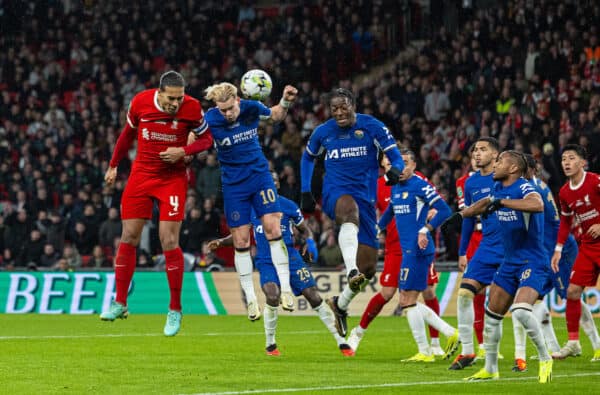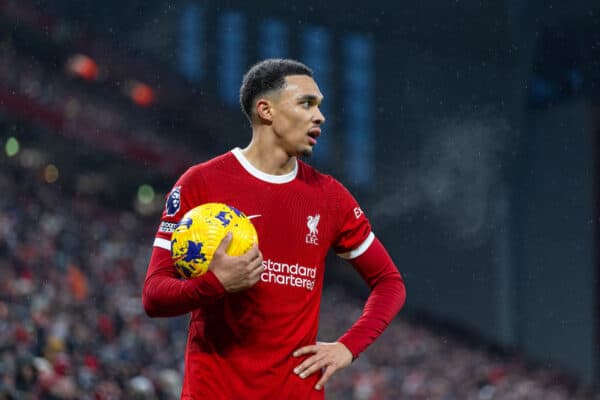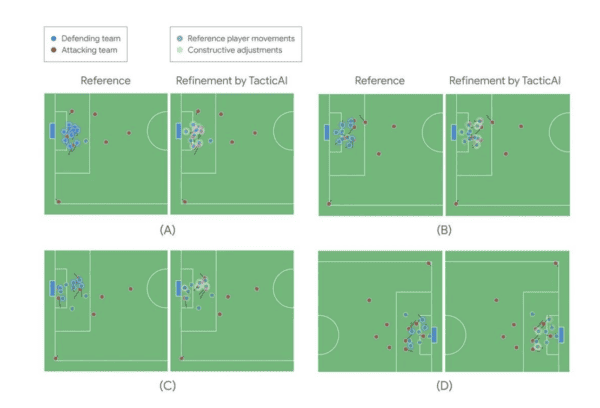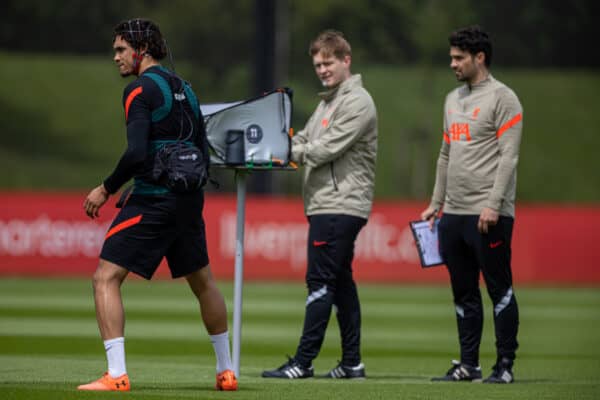Liverpool FC leave no stone unturned in their pursuit of success, and they are aiming to get ahead of the AI curve after investing in a pioneering new tool.
After 117 minutes of football, Liverpool and Chelsea could not be separated. The final of the Carabao Cup had entered extra time, with every supporter in attendance at Wembley anticipating yet another penalty shootout between the two heavyweight English sides.
Jurgen Klopp had already started to think about the order of his takers on the sidelines, but in the end, there was no need. Liverpool won a corner with just three minutes of the Hollywood bout remaining, with Kostas Tsimikas assuming control over the delivery.
The Greek international hit an inswinging cross towards the near post, allowing Virgil van Dijk to connect with a header that decided the contest. At the highest level of a low-scoring sport like football, set-pieces often get overlooked yet regularly prove to make the difference.

That perhaps explains why Liverpool have joined forces with Google DeepMind to create a pioneering new tool that is powered by artificial intelligence. TacticAI is a robotic assistant of sorts, and one that is essentially capable of predicting where deliveries from corners will land.
The groundbreaking product has learned from 7,176 corners taken from Premier League matches between 2020 and 2021, having worked with tracking data — which consists of player coordinates — to suggest offensive and defensive improvements to coaches.
What is ‘TacticAI’?
TacticAI initially explored all phases of the sport before the experts at Liverpool suggested a more precise approach by isolating corners in particular, which is no surprise considering the Reds tend to win over 200 every Premier League season.

“In open play you can’t make a lot of useful on-the-spot changes, because there’s 22 players, and it’s very dynamic, and if you try to make changes in the heat of the moment you might end up confusing people,” said Petar Velickovic, a scientist at Google DeepMind.
“If you can increase your chances to score or defend better at corners, that integrates over an entire season to really give you a competitive edge.”
TacticAI can forecast which player is most likely to make the first contact on the ball, and whether a shot will follow, with the height and weight of each player considered. It can also provide suggestions for coaches and analysts to consider as they attempt to optimise their schemes at both ends of the pitch.
The below image features four examples of defensive adjustments generated by TacticAI to minimise the likelihood of an opposition goal being scored.

Liverpool’s relationship with Google DeepMind has been ongoing for three years, with the Reds renowned for their investment in data science over the past decade.
Demis Hassabis is co-founder and CEO of the artificial intelligence company and also happens to be lifelong Liverpool fan, with Karl Tuyls, who is one of the many scientists to get involved with the collaboration, once attending university on Merseyside.
Their early work was dedicated to penalties rather than corners. Some 12,399 penalties collected by Opta from 2011 to 2017 were analysed, with Liverpool and Google DeepMind attempting to predict where players are most likely to shoot based on their individual playing styles, even if they had never taken a recorded penalty.
TacticAI is the latest development to emerge from the collaboration, and it is arguably the most practical. In fact, the analysts at Liverpool were unable to recognise the difference between AI-generated schemes and human-designed schemes, even favouring the former 90 per cent of the time.
“Top clubs are always searching for an edge, and I think our results indicate that techniques like these are likely going to become a part of modern football going forward,” said Velickovic.

Indeed, Liverpool have already used data to scout players, recruit managers, minimise injuries and improve throw-ins. If AI continues to evolve at its current pace, football will pay attention sooner rather than later, with the Reds aiming to get ahead of the curve.
The final trophy of the Klopp era might have been delivered by a corner. That, in itself, is enough to suggest Liverpool’s desire to experiment is justified.
You can find more of Josh’s work on his Substack here, and his new book, Data Game: The Story of Liverpool FC’s Analytics Revolution, can be purchased here.


